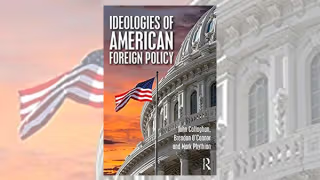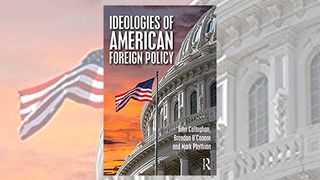by John Callaghan, Brendon O'Connor and Mark Phythiuan
A comprehensive account of ideology and its role in the foreign policy of the United States of America, this book investigates the way United States foreign policy has been understood, debated and explained in the period since the US emerged as a global force, on its way to becoming the world power.

Starting from the premise that ideologies facilitate understanding by providing explanatory patterns or frameworks from which meaning can be derived, the authors study the relationship between ideology and foreign policy, demonstrating the important role ideas have played in US foreign policy. Drawing on a range of US administrations, they consider key speeches and doctrines, as well as private conversations, and compare rhetoric to actions in order to demonstrate how particular sets of ideas – that is, ideologies – from anti-colonialism and anti-communism to neo-conservatism mattered during specific presidencies and how US foreign policy was projected, explained and sustained from one administration to another.
Bringing a neglected dimension into the study of US foreign policy, this book will be of great interest to students and researchers of US foreign policy, ideology and politics.
Routledge
196 pages
Get a copy






